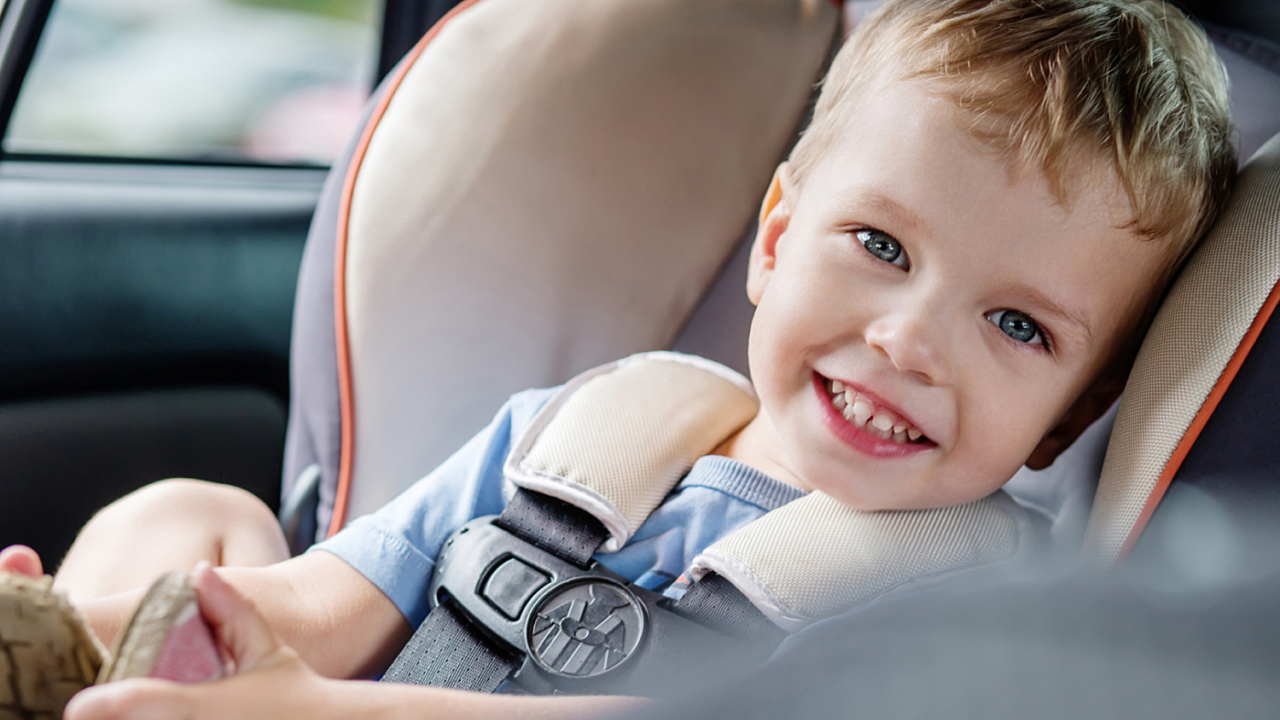Tuesday, 16 April: Research using child-sized crash test dummies has shown, for the first time, a potential safety benefit in using plastic chest clips on child car restraints, as they keep shoulder straps together, reducing the risk of serious injury in a crash.
Despite chest clips being widely used in the United States, they do not meet Australian safety standards due to concerns they may cause neck injuries in a crash. However, researchers at the Transurban Road Safety Centre at NeuRA have found no sign of serious injury related to the chest clips when tested on Australian car restraints.
This breakthrough – the first research of its kind – could lead to a change in Australian standards allowing these clips to be used here.
Researchers began researching the chest clips with a review of real-world data from an American crash database to see if there were any signs of injury in children up to the age of four.
“We found that there was actually a reduction in the risk of moderate to serious injury of all types in children under one when chest clips were used properly,” said Professor Lynne Bilston, Senior Principal Research Scientist at NeuRA.
“While the overall injury risk didn’t change in children aged one to four, there appeared to be a reduction in the risk of neck injuries when the chest clips were used.”
This review of American data prompted Professor Bilston to study the performance of Australian car seats in crash tests using the same type of chest clips used in the US. Professor Bilston and her team conducted crash tests using small child-sized crash test dummies at the Transurban Road Safety Centre based at NeuRA.
“We tested chest clips in frontal crashes, using a crash test dummy that represents the smallest child who would normally be forward facing,” said Professor Bilston.
The crash tests were done at 49 km/hr in a frontal direction, both with a tight harness and with a looser harness. Analysis of high-speed crash test footage showed the plastic clips tended to slide down the straps during the crash, meaning they are unlikely to be forcefully touching a child’s neck. There was no difference in the neck forces with the clips in place. “This analysis was consistent with the US experience of these clips,” said Professor Bilston.
“The bottom line is that the plastic clips may help to keep straps on a child’s shoulders when they fall asleep in the car seat, although they won’t stop a determined escape artist from wriggling out.”
Professor Bilston’s advice to parents with a determined escape artist is to discourage their behaviour by rewarding the child with their favourite treat during each car ride that they stay in their seat.
Transurban Group Executive New South Wales, Michele Huey, said this is the first part of a major research program into child and adult occupant safety in the Transurban Road Safety Centre
“NeuRA’s a world leading research institute – especially in occupant safety – and the outcomes from this crucial project will have lasting community benefits,” Ms Huey said.
“Like NeuRA, we share a passion for improving road safety and are really proud of our partnership and the research it’s delivering at the Transurban Road Safety Centre.”
CEO of NeuRA, Professor Peter Schofield AO, said the research highlights NeuRA’s commitment to road safety.
“NeuRA is conducting high-quality, cutting edge research at the Transurban Road Safety Centre, which is used to optimise and improve road safety in Australia,” said Professor Schofield.
NSW Minister for Health and Medical Research, The Hon. Brad Hazzard MP, said the research partnership between NeuRA and Transurban is vital for improving road safety and saving lives, particularly in NSW.
“Research led by NeuRA’s Professor Lynne Bilston and Associate Professor Julie Brown has already had a significant impact on car seat legislation and led to a 40 per cent reduction on child deaths in cars,” said Mr Hazzard. “To date 119 lives have been lost on NSW roads in 2019, that is why a continued focus on research in this area is so important.”
The results of this research will be submitted for consideration by the Australian Standards Committee to determine whether plastic chest clips might have a net benefit, allowing them to be supplied with Australian child car restraints.
Media kit:
Includes:
- Crash test vision
- B‑Roll vision
- Selection of images
- Research paper
- Media release
- 2 min video package
Media contacts:
Ellice Mol, NeuRA m: 0415 224 886 | Lee Jeloscek, Transurban m: 0438777054




